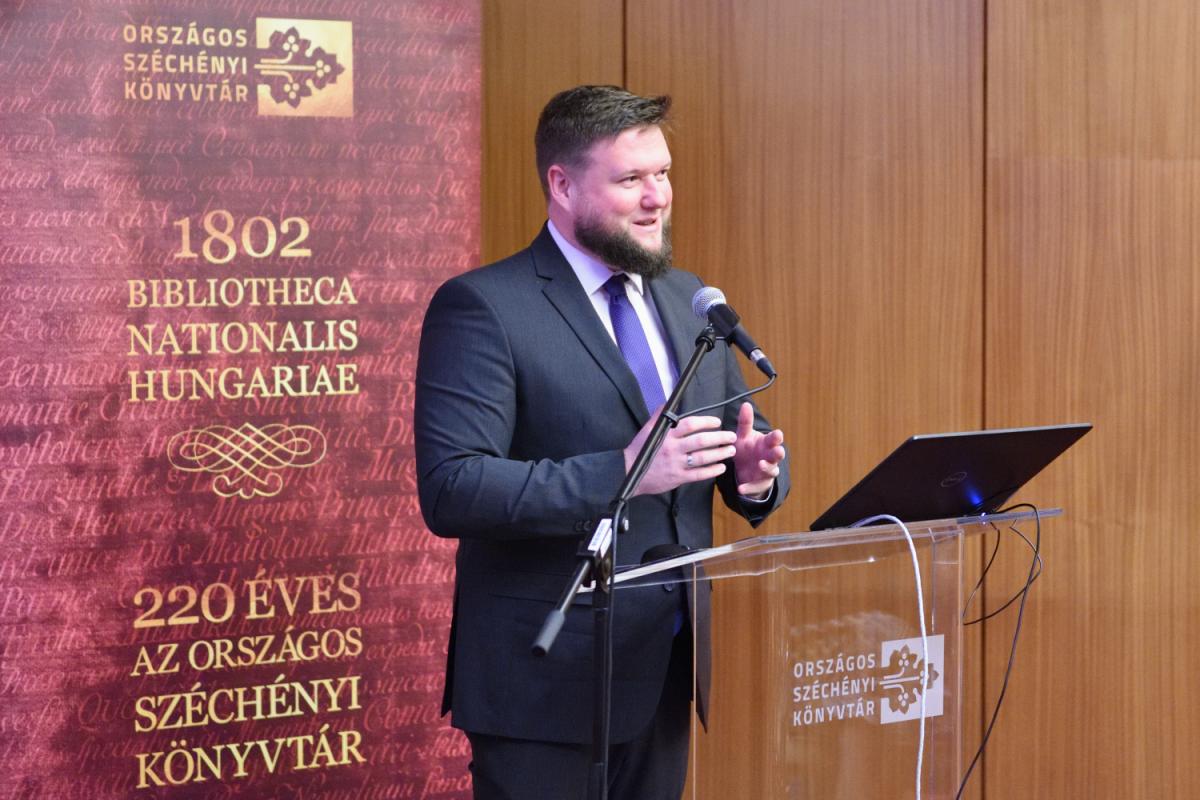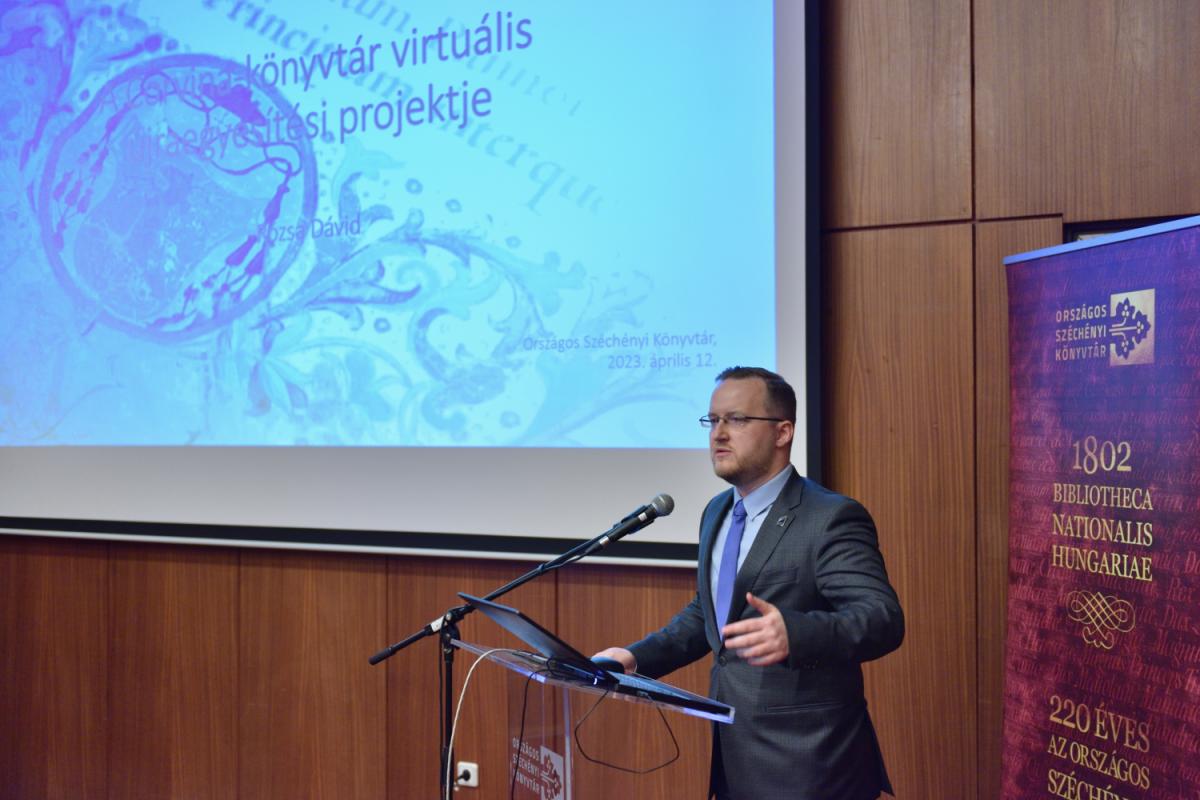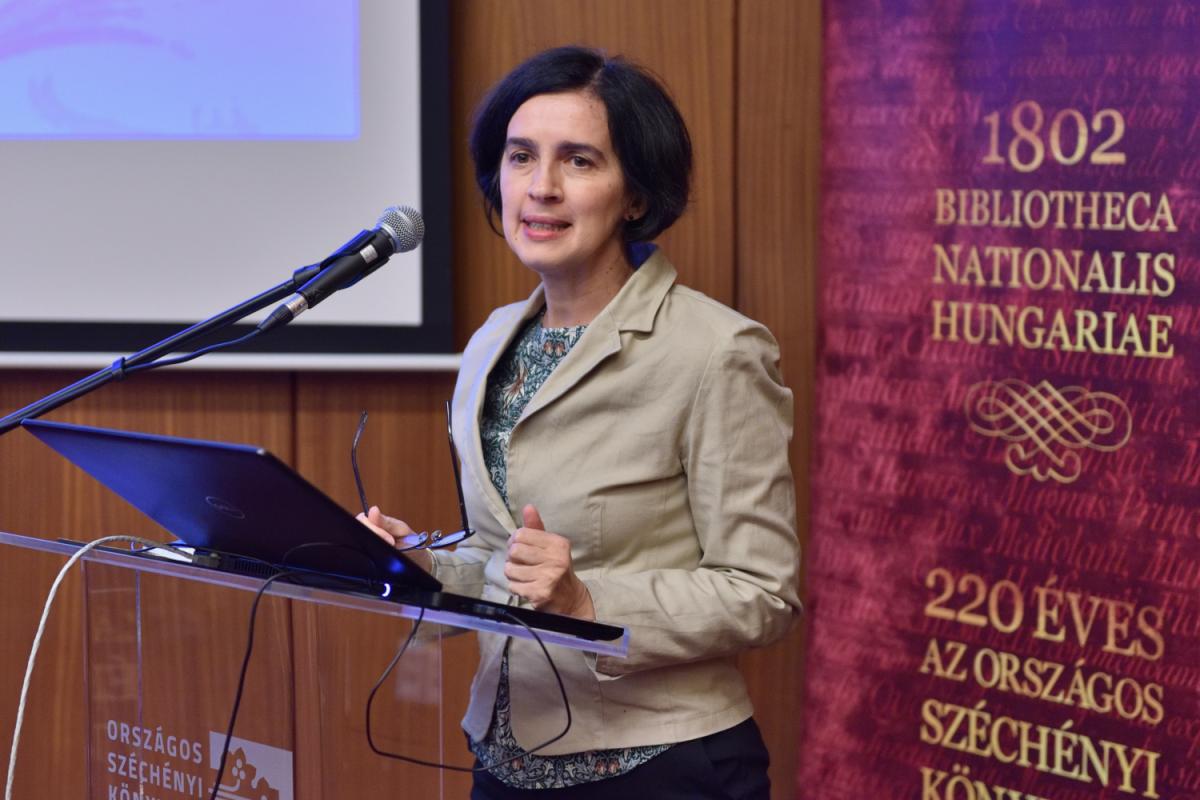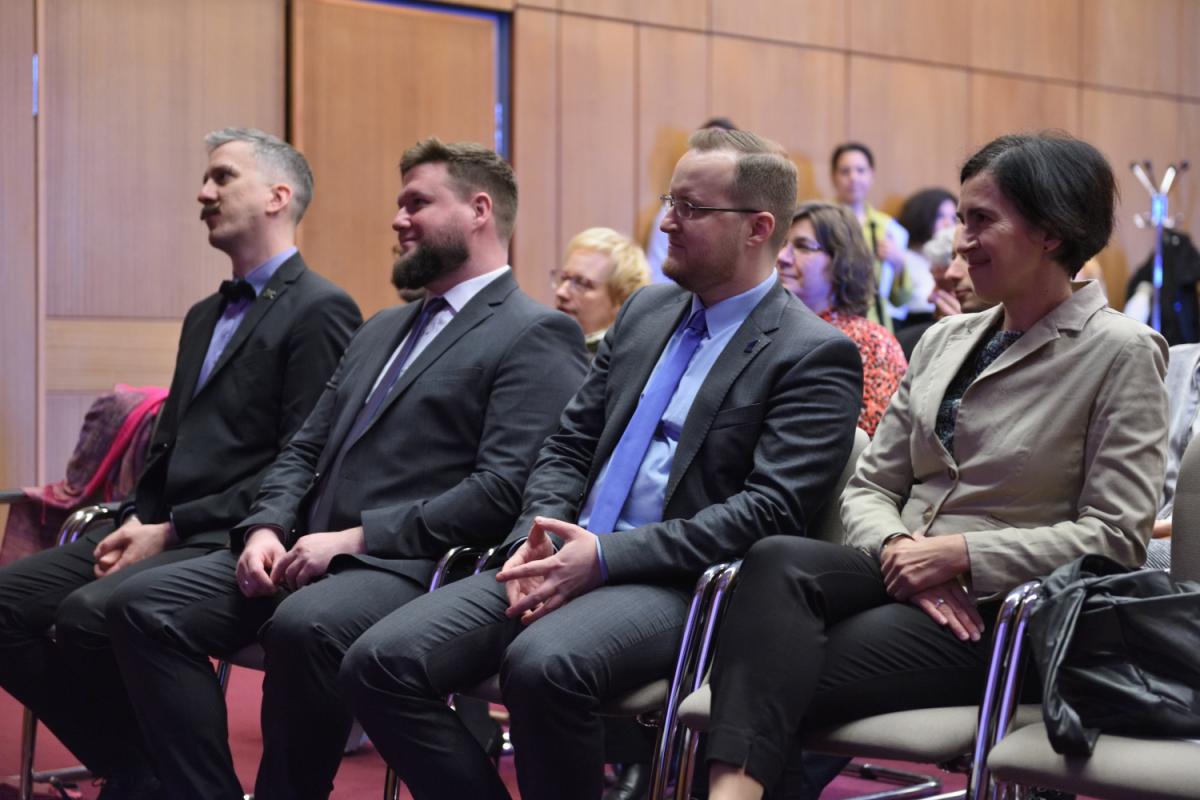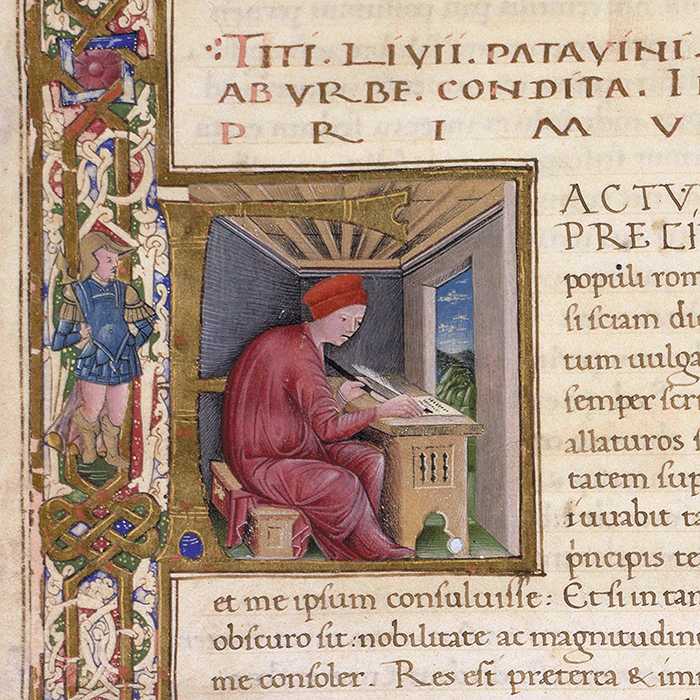
Virtual reunion of the Corvina Library
A press conference on the virtual reunification of the Corvina Library was held on 12 April 2023.
At the event, Máté Vincze, Deputy State Secretary for Public Collections and Cultural Development, welcomed the audience, Dávid Rózsa, Director General, presented the work of the virtual unification, and Edina Zsupán, member of the Fragmenta et Codices Research Group of the ELKH–NSZL, informed the audience about the research and the expanding digital service.
The guest of the press conference, Deputy State Secretary Máté Vincze stressed that if this intellectual property is united and – as it has been so far – available in English, well indexed for specialists, the NSZL can become a real centre for Corvina research.
Dávid Rózsa, Director General, gave a presentation on the current corvina website and the process of the reunification project. He pointed out that corvina.hu already presents codices that are not available anywhere else in the world (corvinas treasured in Verona).
Edina Zsupán, a codicologist of the Fragmenta et Codices Research Group of the ELKH–NSZL, a Hungarian expert of corvinas, presented in the first half of her presentation the use of corvina.hu, highlighting the different filtering options, and other valuable parts of the website, such as the pages with descriptions of the codex bindings. In the second part of her lecture, she spoke about the three corvinas newly arrived from Verona, three chapters of the historiography by Titus Livius.
 The world-famous library of King Matthias (1443–1490, reigned 1458–1490), the Bibliotheca Corvina was the first humanist royal library outside Italy, north of the Alps. Its size can only be estimated at perhaps 2,000 volumes, surpassed in size only by the Vatican Library of the period.
The world-famous library of King Matthias (1443–1490, reigned 1458–1490), the Bibliotheca Corvina was the first humanist royal library outside Italy, north of the Alps. Its size can only be estimated at perhaps 2,000 volumes, surpassed in size only by the Vatican Library of the period.
According to the current state of research, around two hundred and twenty volumes of this unique collection have survived and are now treasured treasures in the great libraries of Europe and the United States. Fifty-five corvinas are currently held in five public collections in Hungary, most of them – thirty-seven items – in the Hungarian National Library.
As part of the NSZL's Corvina programme, which has been running for decades, a website was created in 2018 – the Bibliotheca Corvina Virtualis – with the aim of presenting the surviving and identified corvina codices and archival printed material in their entirety, and with the long-term goal of bringing together the volumes of the royal library online, making the complete digital versions of all corvinas available in one place.
In the same year, we published the complete set of images of the fifty-five corvinas preserved in Hungary and the digitised pages of the one and a half hundred or so corvinas preserved abroad on the corvina.hu website, which provides a rich source for the renewing corvinas research.
In 2022, the international team of researchers contacted all forty-five collections worldwide where corvinas are preserved, ordering digital copies of the codices and asking for permission to publish them on corvina.hu. Thirty-seven digital copies of the one hundred and fifty-five codices were obtained last year, either as gifts or by purchase. The processing of the digital codices is under way, and copies of eleven of the thirty-three corvinas preserved in Florence, three in Verona and one in Nuremberg, have been uploaded to the website, with informative bilingual descriptions prepared by the researchers.



